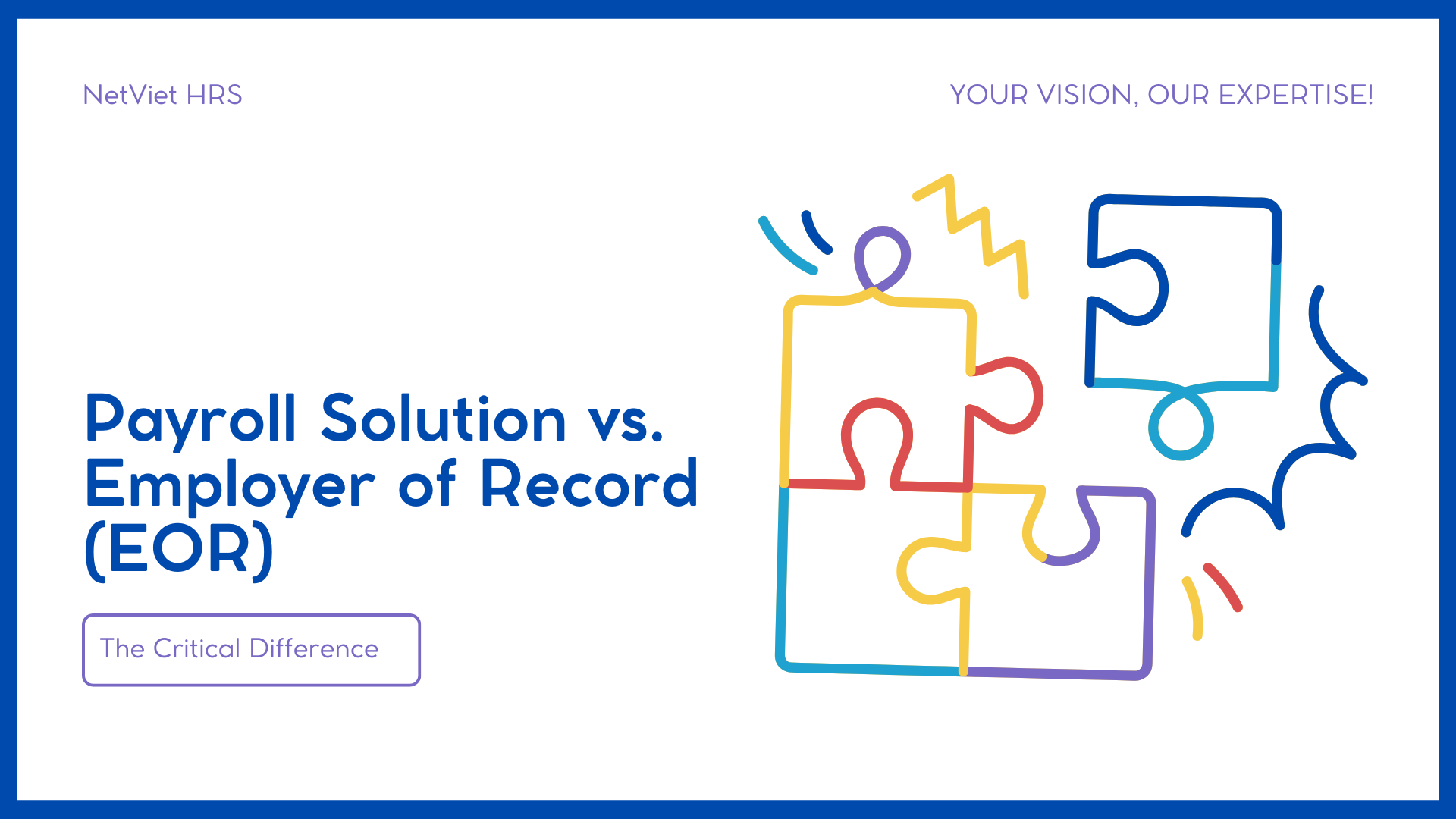For small and medium-sized enterprises (SMEs), managing payroll in-house might seem like a cost-saving move. However, without proper expertise, manual payroll processing can lead to serious payroll mistakes — ones that are not only expensive but also affect employee morale and business compliance.
Here are five of the most common (and costly) payroll errors businesses make when managing salaries themselves.
Table of Contents
Toggle1. Misclassifying Employees or Contractors
One of the biggest payroll mistakes is incorrectly classifying employees as independent contractors or vice versa. In Vietnam, the distinction affects tax obligations, social insurance (SHUI) contributions, and labor rights.
▶️ Why it matters:
Wrong classification may lead to underpayment of insurance, incorrect tax filings, and legal exposure. If discovered in an audit, the company could face fines, back payments, and even lawsuits.
▶️ How to avoid:
Clearly define employment relationships. If unsure, consult labor law experts or outsource to a payroll provider with regulatory experience in Vietnam.
2. Errors in Social Insurance, Health Insurance, and Unemployment Insurance (SHUI) Contributions
SHUI is a mandatory component of payroll in Vietnam. Mistakes in payroll calculating or reporting contributions — such as missing a new employee’s registration deadline or applying the wrong contribution rate — can lead to penalties and disrupted employee benefits.
▶️ Why it matters:
Non-compliance with SHUI regulations can result in government fines and strained relationships with employees who depend on timely insurance coverage.
▶️ How to avoid:
Ensure your payroll team understands SHUI contribution tiers and legal deadlines. Automate reminders for onboarding or offboarding changes to avoid delays.
Learn more about Vietnam’s personal income tax obligations
3. Miscalculating Personal Income Tax (PIT)
Payroll teams often miscalculate PIT by failing to apply the correct deductions (e.g., dependent claims, insurance contributions) or by misunderstanding the progressive tax rates. Inaccuracies can trigger audits or unexpected tax liabilities for both employer and employee.
▶️ Why it matters:
Underreporting tax can result in interest charges and fines. Overreporting erodes employee trust and satisfaction.
▶️ How to avoid:
Use updated tax calculation tools or software. Double-check individual PIT rates, thresholds, and deductions per current laws.
4. Overlooking Payment Deadlines
Late salary payments — even just once — can damage employee trust and cause legal issues. This issue is considered as the most serious payroll mistakes for any corporate. In Vietnam, labor law requires timely and complete salary payments, and delays can result in financial penalties.
▶️ Why it matters:
Employees may file complaints with the labor department, and repeat offenses may tarnish your company’s employer branding.
▶️ How to avoid:
Create a fixed payroll schedule with clear roles and responsibilities. Consider outsourcing salary disbursement to ensure consistency.
5. Inadequate Record-Keeping and Reporting
Some businesses neglect to properly document payroll reports, contracts, or tax filings. This is risky during audits or employee disputes, and it makes year-end reporting (like PIT finalization) far more difficult.
▶️ Why it matters:
Missing or inconsistent records can cost businesses time, credibility, and even licenses during official inspections.
▶️ How to avoid:
Maintain digital records of all payroll transactions, employee contracts, and government filings. Use payroll software or an external payroll provider that offers transparent reporting.
The Real Cost of Payroll Mistakes
While handling payroll internally might save you a monthly service fee, the hidden costs of getting payroll mistakes — from government fines to employee dissatisfaction — can far outweigh the perceived savings.
When businesses grow, payroll complexity increases, which results in higher possibility for encountering inaccuracy. Legal regulations change. Keeping up requires time, accuracy, and expertise — resources that many SMEs struggle to maintain internally.
A Smarter Solution: Partner with Experts
Outsourcing payroll to a trusted partner like NetViet helps reduce risk, optimize costs, avoid salary miscalculation, and ensure 100% compliance with Vietnamese labor and tax laws.
- Tap into expert knowledge on SHUI, PIT, and labor regulations
- Eliminate delays and penalties by outsourcing payroll and tax reporting
- Refocus your internal resources on business growth and strategic priorities
Conclusion
Payrolls aren’t just about numbers — they impact people, operations, and trust. If you’re unsure about your payroll compliance or accuracy, it’s time to reassess your approach.
🔍 Avoid costly errors. Let payroll experts do what they do best.
Follow NetViet for the latest industry updates and more:
- Phone: +84 28 6261 7310
- Email: info@netviet.com.vn
- Website: www.netviet.com.vn
- Facebook | LinkedIn | Twitter














